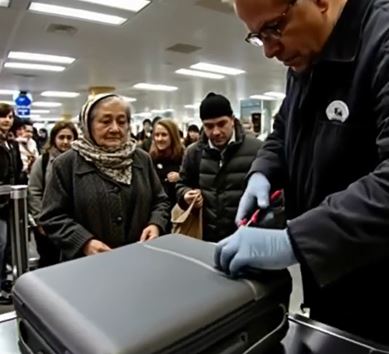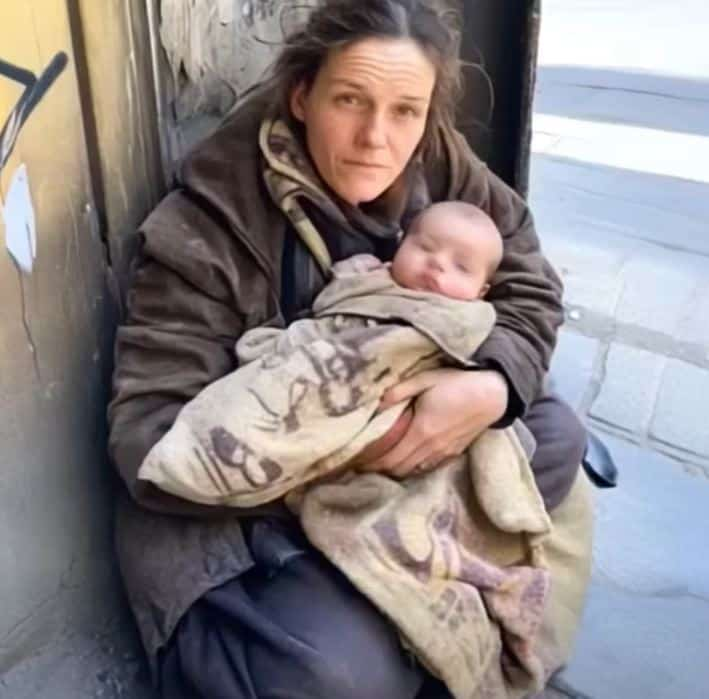As soon as I got home, I picked up the bread, ready to slice it and place it on the table 
 . But the moment the knife cut through the center of the loaf, my eyes caught something strange
. But the moment the knife cut through the center of the loaf, my eyes caught something strange  . At first, I thought it was just a dough defect or even mold, but the greenish-yellow color and soft texture told me it wasn’t ordinary bread . My heart raced, and I realized I needed to be careful
. At first, I thought it was just a dough defect or even mold, but the greenish-yellow color and soft texture told me it wasn’t ordinary bread . My heart raced, and I realized I needed to be careful  . Luckily, we noticed it in time and didn’t eat it
. Luckily, we noticed it in time and didn’t eat it  . Always pay attention not only to what you eat but also to the small details that keep your family safe
. Always pay attention not only to what you eat but also to the small details that keep your family safe 

 .
.
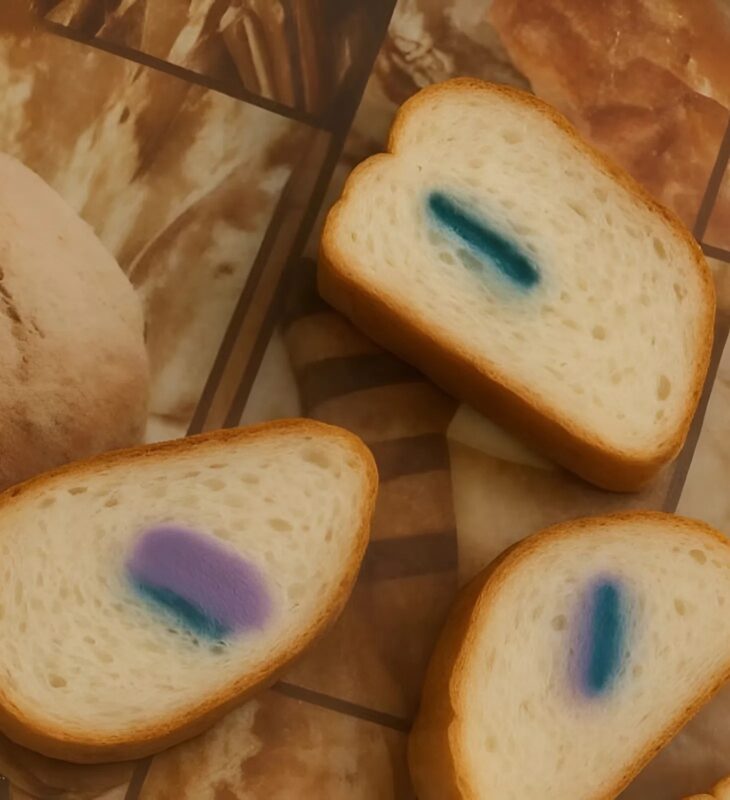
I usually bought the same bread  from a store I trusted completely. The products were always fresh, the staff greeted me with smiles, and I never doubted the quality. This time was no different. I picked up the most ordinary loaf, the one that usually graced our family table, and walked home peacefully, thinking everything would be just as usual.
from a store I trusted completely. The products were always fresh, the staff greeted me with smiles, and I never doubted the quality. This time was no different. I picked up the most ordinary loaf, the one that usually graced our family table, and walked home peacefully, thinking everything would be just as usual.
When I closed the door behind me and placed the bread on the kitchen counter  , I paused for a moment, enjoying the quiet of the house. Dinner was about to be prepared, and I imagined my family sitting down, ready to enjoy the familiar smell of fresh bread. I grabbed a knife and began slicing the loaf, expecting nothing more than the soft, comforting texture inside.
, I paused for a moment, enjoying the quiet of the house. Dinner was about to be prepared, and I imagined my family sitting down, ready to enjoy the familiar smell of fresh bread. I grabbed a knife and began slicing the loaf, expecting nothing more than the soft, comforting texture inside.

At first, everything seemed normal  . The crust was firm but fresh, the aroma delightful. But as the knife cut through the center, my eyes caught sight of something unusual—a strange greenish-yellow mass. When I touched it, I realized it was soft, but in a completely unfamiliar way. My heart skipped a beat, and I froze for a moment, unsure whether to laugh or panic.
. The crust was firm but fresh, the aroma delightful. But as the knife cut through the center, my eyes caught sight of something unusual—a strange greenish-yellow mass. When I touched it, I realized it was soft, but in a completely unfamiliar way. My heart skipped a beat, and I froze for a moment, unsure whether to laugh or panic.
Looking closer  , it became clear: this was not bread. It was a kitchen sponge, the kind we use to wash dishes, without the abrasive plastic layer. The realization hit me like a cold wave. How could a sponge have ended up inside a loaf of bread? The shock was immense, but there was no one else to blame. I simply stopped, placed the bread down, and took a deep breath.
, it became clear: this was not bread. It was a kitchen sponge, the kind we use to wash dishes, without the abrasive plastic layer. The realization hit me like a cold wave. How could a sponge have ended up inside a loaf of bread? The shock was immense, but there was no one else to blame. I simply stopped, placed the bread down, and took a deep breath.
I started to think about how it could have happened  . Perhaps it was a production error, or someone at the bakery had been careless. Maybe it was a rare flaw in the baking process. Regardless, the most important thing was that no one had eaten it. My family was safe, and I had a moment to reflect on the lesson hidden in this strange incident.
. Perhaps it was a production error, or someone at the bakery had been careless. Maybe it was a rare flaw in the baking process. Regardless, the most important thing was that no one had eaten it. My family was safe, and I had a moment to reflect on the lesson hidden in this strange incident.
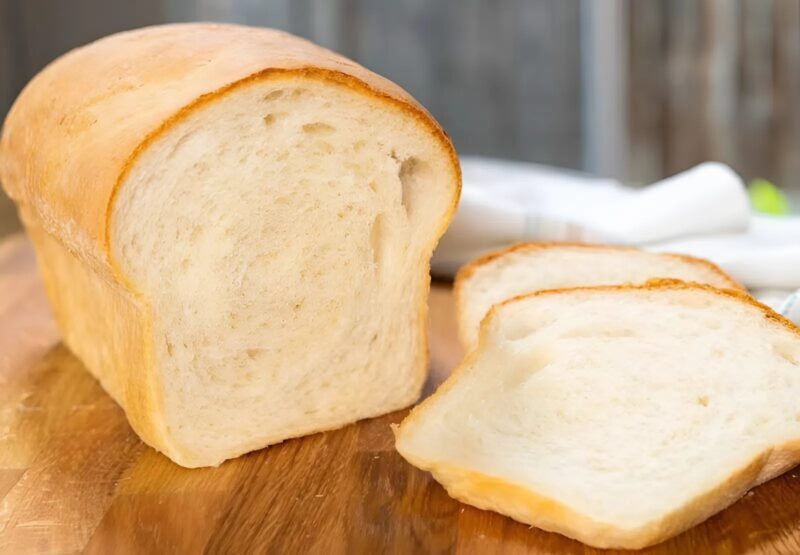
I imagined if it had been for a child  —how dangerous it could have been. That thought sparked a feeling of compassion and responsibility, not anger. It reminded me that every action we take, even small ones, can affect others. That loaf of bread, which should have been a simple meal, had suddenly become a symbol of vigilance, care, and empathy.
—how dangerous it could have been. That thought sparked a feeling of compassion and responsibility, not anger. It reminded me that every action we take, even small ones, can affect others. That loaf of bread, which should have been a simple meal, had suddenly become a symbol of vigilance, care, and empathy.
I noted down the store and manufacturer details  , thinking of what steps I should take—informing the supplier, alerting authorities. I realized responsibility is not just legal but also deeply human. We all—whether buyers or producers—can make a difference by being careful, kind, and considerate.
, thinking of what steps I should take—informing the supplier, alerting authorities. I realized responsibility is not just legal but also deeply human. We all—whether buyers or producers—can make a difference by being careful, kind, and considerate.
The next morning, when I cut another loaf of bread  , it wasn’t just on the table; it was in my mind as a symbol of the lesson I had learned. That small, ordinary sponge had taught me attention to detail, care for others, and the value of thinking beyond the immediate moment.
, it wasn’t just on the table; it was in my mind as a symbol of the lesson I had learned. That small, ordinary sponge had taught me attention to detail, care for others, and the value of thinking beyond the immediate moment.
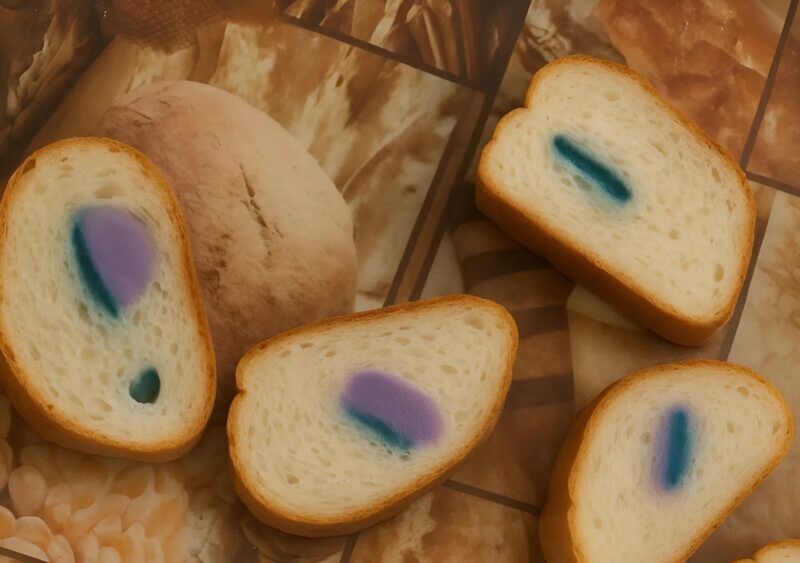
I decided to share this story  with others, so they too could realize that even the smallest, most ordinary incidents in life can be lessons, reminders, and opportunities for kindness. That tiny sponge had already done its work, teaching awareness, empathy, and human responsibility.
with others, so they too could realize that even the smallest, most ordinary incidents in life can be lessons, reminders, and opportunities for kindness. That tiny sponge had already done its work, teaching awareness, empathy, and human responsibility.
Most importantly  , I understood that life’s true value is not in objects but in the attention, kindness, and care we share with others. That loaf of bread, ordinary as it seemed, had already served another purpose—it reminded me that everyday moments can hold lessons for the heart and soul.
, I understood that life’s true value is not in objects but in the attention, kindness, and care we share with others. That loaf of bread, ordinary as it seemed, had already served another purpose—it reminded me that everyday moments can hold lessons for the heart and soul.




















